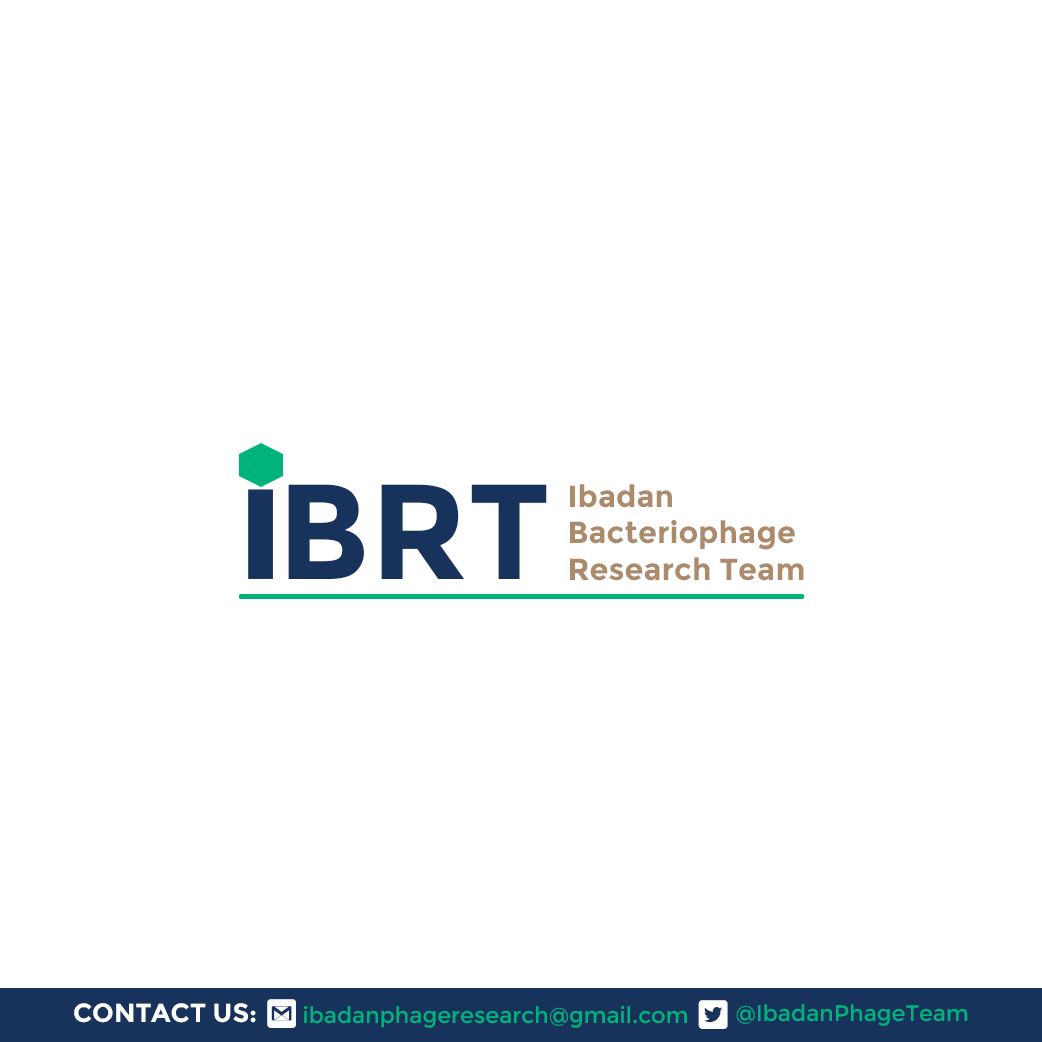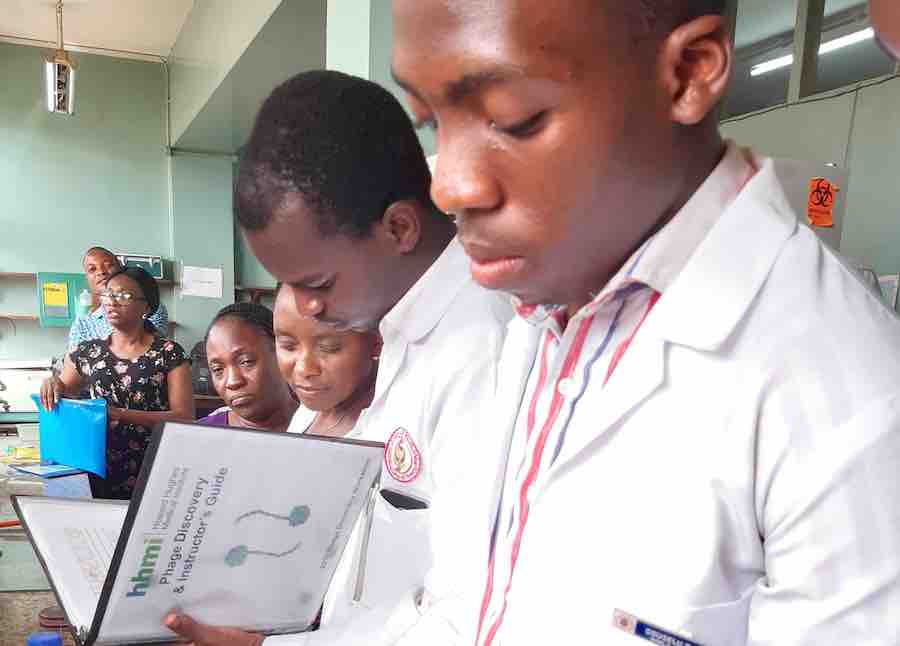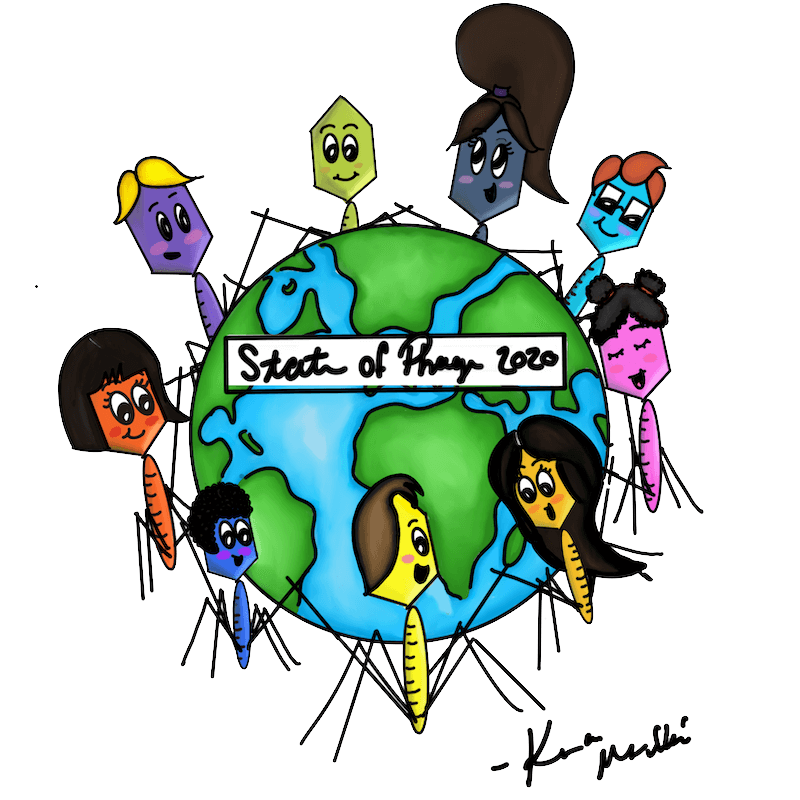A team of 8 biomedical science researchers at the University of Ibadan, led by Prof. O. G. Ademowo, envisioned new opportunities to foster early career research participation for young undergraduate students. To achieve this goal, the University of Ibadan was enlisted as a cohort institution in the Science Education Alliance-Phage Hunters Advancing Genomics and Evolutionary Science (SEA-PHAGES) project, an early-career research initiative of the Howard Hughes Medical Institute Science Education Division, and the Graham Hatfull Research group at the University of Pittsburg.
The successful enlistment of the institution as a member of the Cohort 11 group of the international research project involving more than 190 institutions made University of Ibadan, one of only two institutions on the project in Sub-Saharan Africa. The birth of the Ibadan Bacteriophage Research Team in 2018 was not only a big win for early career researchers, but also opened the frontiers of bacteriophage research at the institution.
The program started with a team of 11 students and forms part of MLS301, an undergraduate course in the Department of Biomedical Laboratory Science. The pioneer team successfully completed the first manual annotation of a bacteriophage genome at the institution. The bacteriophage Idaho (accession number: MK757448) was the team’s first project work, and the research findings were detailed in the team’s abstract submissions at the SEA-PHAGES international symposium, held at Janelia Research Campus near Washington, DC (Oduselu et al., 2019 and Ademowo et al. 2019).
The Ibadan Bacteriophage Research Team was unrelenting in its efforts to proceed into the second year of the project. Undaunted by the inability to isolate an indigenous bacteriophage from the institution in the first year, the team successfully completed manual annotation of bacteriophage Dothraki (accession number: MT451984) while also commencing a phage hunting exercise to discover the team’s first bacteriophage isolate. The team, identifying a huge knowledge gap between undergraduate students and biomedical researchers, in regards to the emerging role of bacteriophage therapy as an alternative antimicrobial option, began a massive advocacy campaign on social media by detailing the progress of the team’s phage hunting exercise. This was also a bid to increase awareness of the emerging global health challenge of antimicrobial resistance and the risk it poses, specifically to the African continent.
Though the team’s phage isolation plans were hindered by the Coronavirus global health pandemic, which brought the laboratory processes to an abrupt halt, the team’s efforts gained steady momentum, as they continued their research efforts through review writing. The team’s first published review paper entitled “An exegesis on bacteriophage therapy: An emerging player in the fight against antimicrobial resistance” detailed interesting perspectives of the current state of knowledge about bacteriophage therapy in Africa. A second review paper (unpublished) entitled “Expanding the frontiers of bacterial diagnosis through bacteriophage biotechnology” was presented at the International Biotechnology Conference, held at Covenant University, Ota, Nigeria. It discusses the possible role of bacteriophage bioengineering through fluorescent technology to ease the burden of cost and precision in bacterial diagnosis.
The efforts of the team did not go unnoticed by the international community as the student phage team leader, Tolulope Oduselu was recently recognized by the European Society of Clinical Microbiology and Infectious Diseases (ESCMID). He was recognized as one of the 30 distinguished researchers under the age of 30, the youngest and the only undergraduate researcher among the recipients of the award.
The team also recently received commendations from the global phage community for efforts in designing a virtual training programme for their third project year. As part of the virtual training programme, which involved a total of 30 members, two bacteriophage genomes (Phishy and Sedona) requested from HHMI SEA-PHAGES genome exchange site will be annotated before the end of the year. The team, in partnership with Phage Directory, also plans to organize a genomic training workshop for interested undergraduate students, in a bid to encourage students’ early exposure to the emerging role of computational knowledge in biomedical research.
The team has made the best use of the SEA-PHAGES initiative, and its success story is one to set an example for other SEA-PHAGES teams and undergraduate research groups around the world. These successes would not have been achieved without the supervisory role of the Faculty Team at the University of Ibadan, who committed immense efforts to seeing the vision of the SEA-PHAGES project at the University of Ibadan come to fruition.
Keep up with the Ibadan Bacteriophage Research Team!
Twitter: @IbadanPhageTeam









